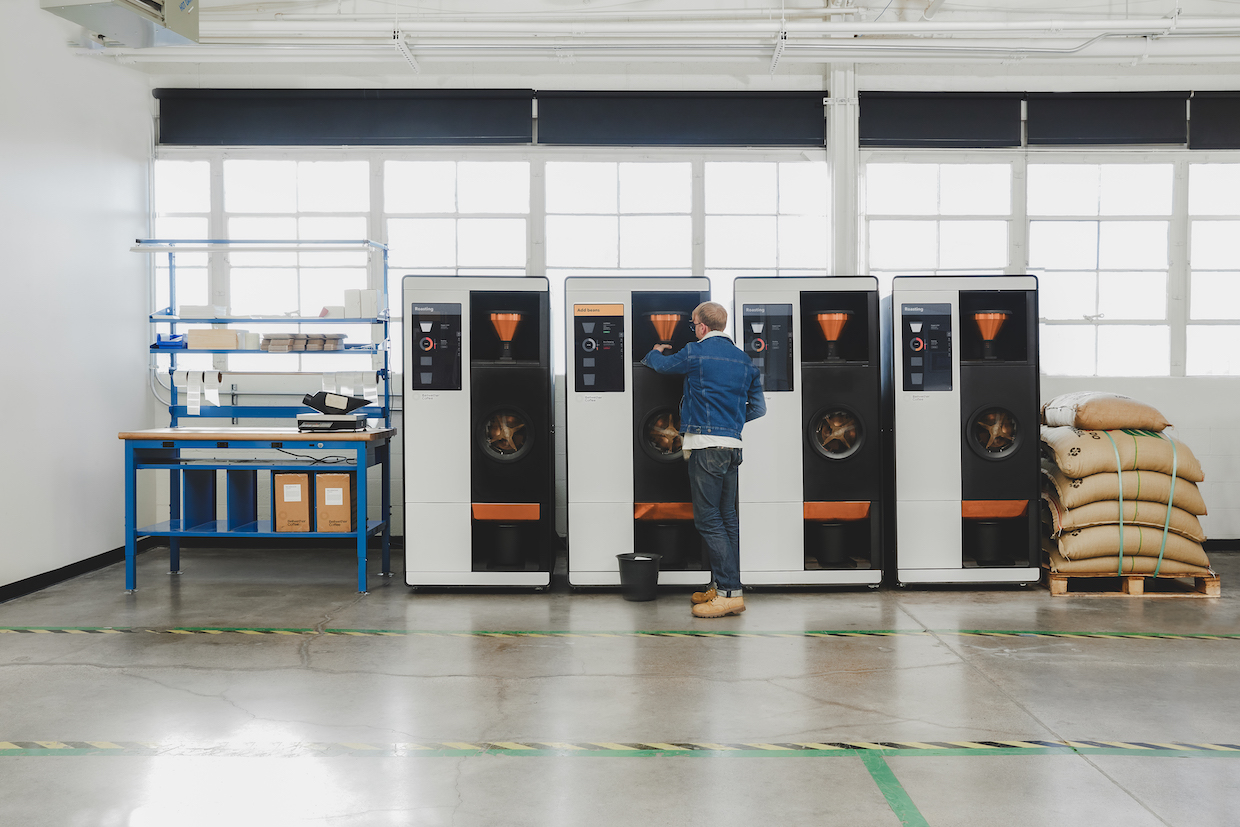
A lineup of Bellwether Coffee machines in a “Bellwether Hub.” 2022 courtesy photo by Bellwether.
Electric coffee roasting machine maker Bellwether Coffee has announced a commitment to living income pricing throughout its green coffee supply chain by the end of 2024.
The move is intended to separate coffee pricing from the commodities market, as maintained by the International Commodity Exchange (ICE), which has been widely adopted by the coffee industry as a price-setting mechanism. This is despite the reality that millions of coffee farmers live in poverty due to perpetually low prices, and that many of the world’s largest coffee buyers are not able to ensure living incomes in their own supply chains.
“Despite the industry’s efforts to ensure farmers are paid fairly, 80% of the 12 million coffee producers around the world are still living below the poverty line,” Grayson Caldwell, head of sustainability and impact at Bellwether Coffee, said in an announcement today. “As a result, Bellwether is completely transforming our own supply chain and taking on living income pricing as a major company initiative to work towards closing the poverty gap amongst coffee farmers worldwide.”
The concept of living income prices has gained significant traction among NGOs and some progressive companies in the coffee industry in recent years as a means to reduce poverty gaps among producers. In all agricultural sectors, living income might broadly be defined as a baseline income that makes farming viable by exceeding the costs of production while accounting for basic costs of living. It is typically defined on either a local/regional or countrywide level.
Organizations such as the International Coffee Organization and Fairtrade International have invested in living income benchmarking in recent years, with the hope that the private sector will commit to new pricing models designed to break the cycle of poverty among small-scale farmers.
Bellwether’s living income initiative is reflected in its in-house green coffee marketplace. Users of the California company’s core electric roasting machines have access to the marketplace and related roasting, quality control and inventory-management services.
Bellwether declined to disclose its annual purchase volumes or the names of specific trading partners, but Caldwell told DCN that the green coffee marketplace “has sold millions of pounds of coffee and is growing rapidly as we expand our roaster fleet.”
“We source from 26 coffee-producing countries — 77% of which are relationship coffees, meaning we have purchased from the same farmers year after year and have established trust,” Caldwell told DCN. “We’re also very proud that 50% of our coffee is produced by women.”
The company has been engaged in living income pricing since at least May of 2021, when it announced its participation in a “verified living income” model alongside coffee trader Sustainable Harvest and the nonprofit Heifer International. Last December, alongside Sustainable Harvest and Fairtrade, the company announced it fulfilled a living income price commitment for all its coffees sourced from Guatemala.
In today’s announcement, Caldwell stated, “This pricing methodology is not a mechanism to negotiate contract prices, but instead to hold Bellwether accountable to pay prices that help to close the living income gap for producers.”
[Note: This story has been updated since its original publication with additional comments from Grayson Caldwell regarding Bellwether’s green coffee marketplace.]
Does your coffee business have news to share? Let DCN’s editors know here.
Nick Brown
Nick Brown is the editor of Daily Coffee News by Roast Magazine.







Comment